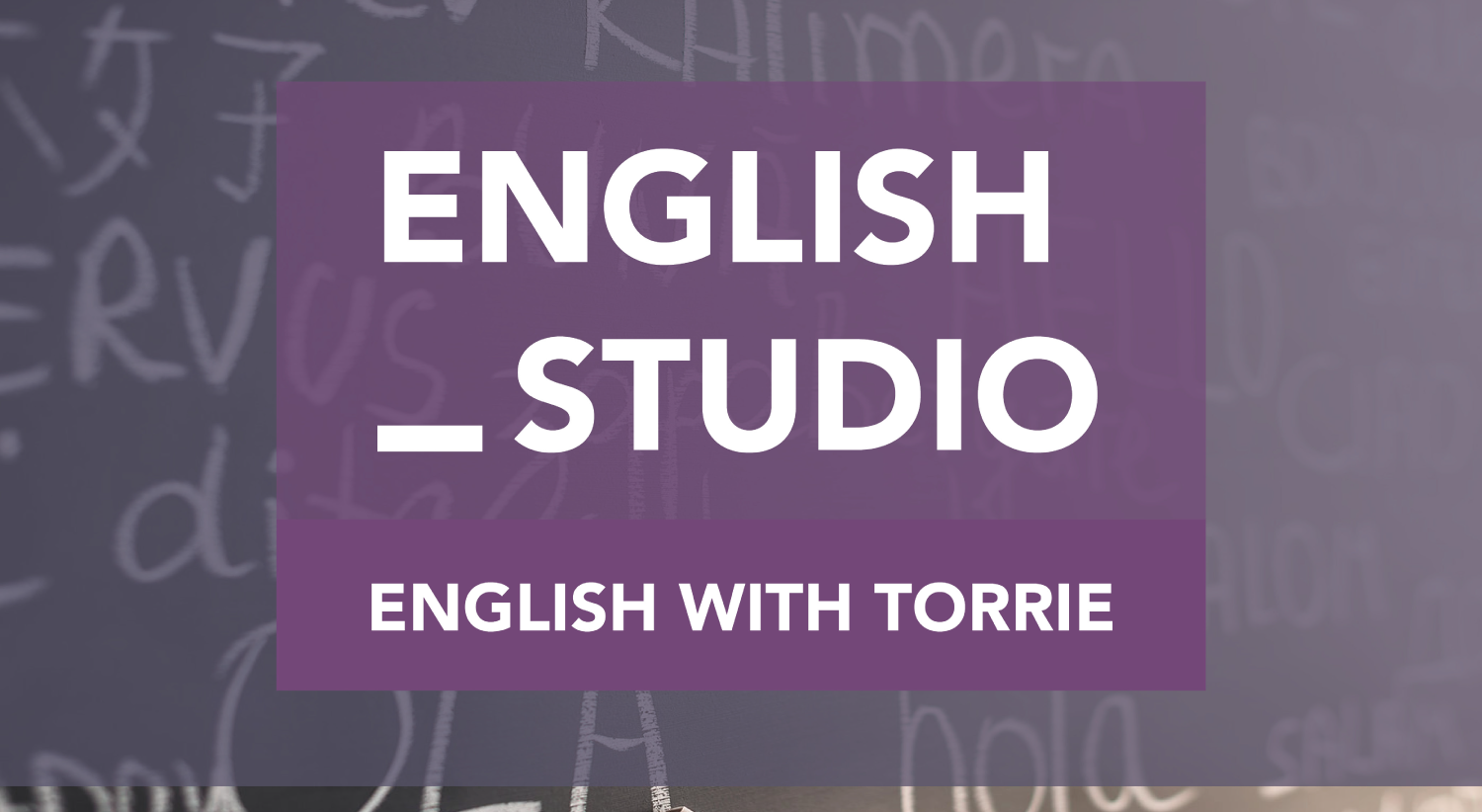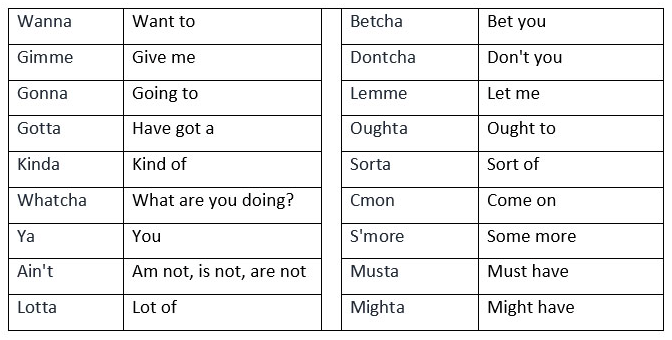Contractions are words that are created by combining words in order to shorten them from their original form. Contractions are used when speaking and when writing in casual situations. Common contractions are words like she's and don't and can be both written (informally) and spoken.
Informal contractions often combine with the following words:
- + to
- + you
- + of
- + would have
- miscellaneous
Informal contractions are contractions that break grammar rules and are only used in very casual speech. Two or even three words could be merged. An apostrophe is often not used.
Here also a short video to help you out :)






